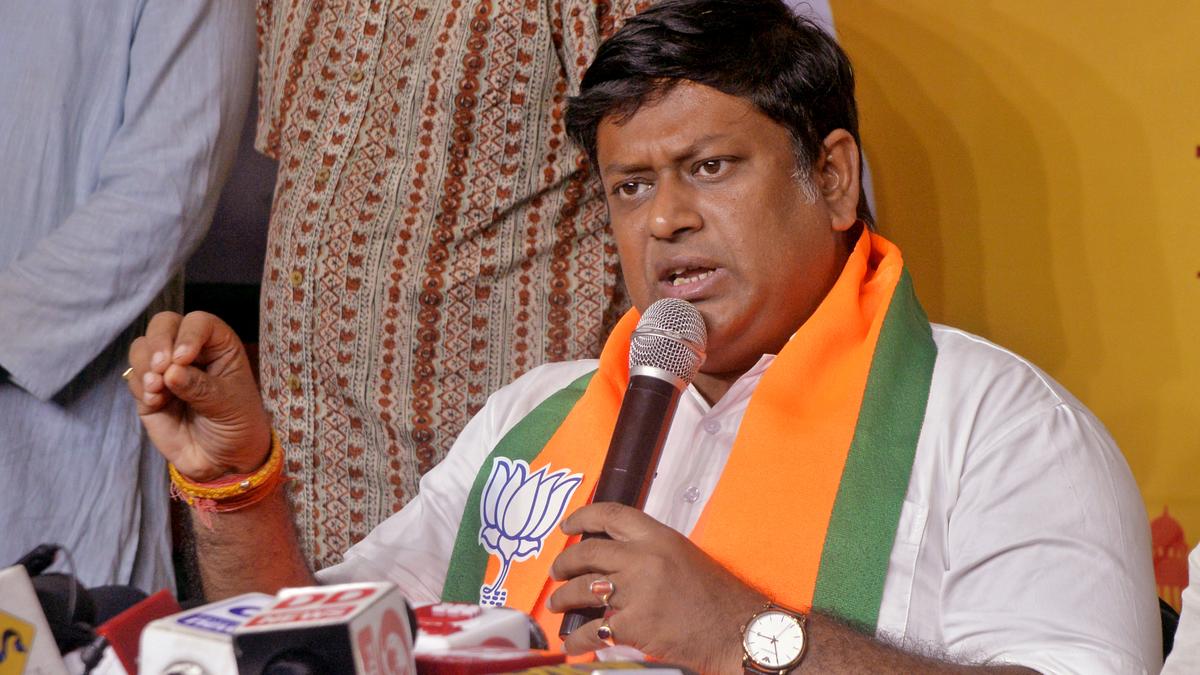 |
|
The West Bengal Bharatiya Janata Party (BJP) is poised to elect a new president by July 3, setting the stage for a leadership transition ahead of the crucial 2026 Assembly elections. This decision comes as the current president, Sukanta Majumdar, concludes his term, which has been extended. However, the party's well-established policy of 'one party, one post' presents a significant hurdle to his re-election, given his concurrent role as the Union Minister of State for Education and Development of North East Region, a position he has held since 2024. The impending election of a new party president marks a pivotal moment for the BJP in West Bengal, particularly with less than a year remaining before the state heads to the polls. The saffron party has solidified its position as the principal opposition party in the state, yet it faces a substantial challenge in overcoming the substantial lead held by the ruling Trinamool Congress. In the recent Lok Sabha elections, the BJP garnered approximately 38% of the vote share, while the Trinamool Congress commanded a more significant 48%. This electoral landscape underscores the necessity for the BJP to strategically position itself under new leadership to effectively contest the upcoming Assembly elections and bridge the existing gap in voter support. The selection of the new president will therefore be a strategic decision made with the explicit intent to maximize the party’s electoral advantage in the upcoming elections and build upon existing voter support. Factors such as leadership experience, rapport with grassroots voters, and capacity to unify disparate factions within the party will be the deciding factors in the new party president’s selection. The new party president must be an individual who can inspire confidence within the party and be capable of attracting support from wavering voters in the general public. This is particularly important given the strong dominance the Trinamool Congress possesses in the upcoming elections. Therefore, the new party president will have a significant task in their selection and implementation of election strategies. The outcome of the upcoming assembly elections will have significant implications for both the BJP and the Trinamool Congress. A victory for the BJP would significantly weaken the power of the Trinamool Congress, while a victory for the Trinamool Congress would further cement their dominance over the state’s political future.
Since the 2021 Assembly elections in West Bengal, a series of new faces have emerged within the state unit of the BJP, signaling a potential shift in the party's internal dynamics. Among these emerging figures, Suvendu Adhikari, the Leader of Opposition, stands out as a prominent leader. Mr. Adhikari's journey to the BJP involved a significant political transition, as he defected from the Trinamool Congress in December 2020. His subsequent victory over Chief Minister Mamata Banerjee in the Nandigram constituency during the 2021 Assembly polls further cemented his status as a key player within the party. However, despite his growing influence, a segment of the BJP's old guard remains cautiously wary of Mr. Adhikari due to his prior long-standing association with the Trinamool Congress. This internal skepticism highlights the complex dynamics at play within the party as it seeks to consolidate its position and navigate the challenges of the upcoming Assembly elections. The wariness among certain factions regarding Mr. Adhikari highlights the challenges of unifying members who entered from different party affiliations. While this is an advantageous aspect of strengthening the BJP party through more membership, this also has led to some internal strife and disagreement regarding the most suitable strategies and approaches to defeat their political opponents. Suvendu Adhikari’s defection from the Trinamool Congress was a major shock in the political landscape of West Bengal, and this underscores the importance of fostering internal unity in order to maximize the BJP’s ability to compete with the ruling party. Fostering the sense of a shared mission is key to building cohesion in the party.
Simultaneously, a recent meeting between BJP Rajya Sabha MP Samik Bhattacharya and the party's top leadership in Delhi has ignited speculation within political circles. Mr. Bhattacharya, a long-time loyalist of the party, enjoys widespread acceptance across various factions and also serves as the chief spokesperson for the party in West Bengal. This combination of experience, loyalty, and communication skills positions him as a potential contender for the position of West Bengal BJP president. Furthermore, there has been speculation about the possibility of one or more women leaders from the party emerging as candidates for the presidency. The identification of a suitable woman leader will further strengthen the BJP and potentially attract more female voters who previously may have not seen the BJP as a political party that represented their interests. The meeting between Mr. Bhattacharya and the party’s top leadership has brought about great speculation regarding his potential candidacy and possible strategies to bring about a victory in the upcoming elections. While the specific contents of the meeting were not disclosed, this certainly signals the high likelihood of him being seriously considered for the role. The potential appointment of a new president represents a vital step for the BJP as it prepares for the upcoming assembly elections. The selection of an experienced loyalist, an emerging new face, or a prominent woman leader will have significant repercussions for the future of the BJP party. This election will not only decide the individual who will lead the party but also set the political tone as the BJP seeks to compete with the Trinamool Congress. All eyes will be on the BJP as they seek to navigate this complex political landscape and vie for power.
